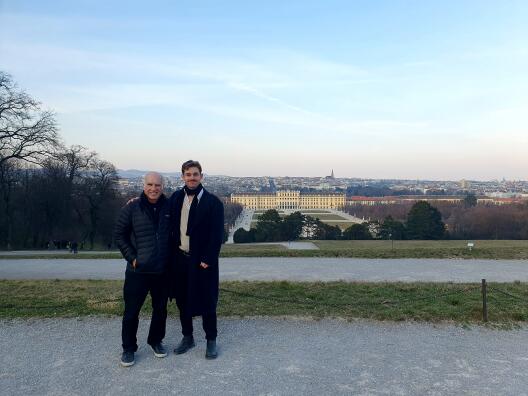Emotional Awareness and stress resilience in times of the COVID-19 pandemic
Antragsteller: Julian Herpertz
Fachbereich, Studienrichtung: FB Psychiatrie, Institut für Translationale Psychiatrie, Studienrichtung: Medizin
Projekttitel: Emotional Awareness and stress resilience in times of the COVID-19 pandemic
Fördersumme: 860,00 Euro
Kontakt: julian.herpertz@uni-muenster.de
Projektbeschreibung:
The primary objective of the project was to investigate emotional awareness and its predictive value on the psychological adaptation during the transition from lockdown to reopening period in the era of the COVID-19 pandemic. The project comprised two subprojects:
1. the development of a text analysis program for evaluating emotional awareness
2. the analysis of smartphone-collected data on psychological adaptation processes during the pandemic.
The first subproject was in collaboration with Prof. Richard D. Lane, Professor of Psychiatry, Psychology, and Neuroscience at the University of Arizona. In 1990, Prof. Lane developed the Levels of Emotional Awareness Scale (LEAS), a performance scale that quantifies emotional awareness through text analyses. Emotional awareness refers to the ability to identify, interpret, and verbalize experienced emotions. Before applying for the funding for student research projects, I conducted a research internship with Prof. Lane in Arizona. Together with Jacob Taylor, a PhD student in Astronomy and Astrophysics at the University of Toronto, who was concurrently interning in Arizona, we developed the German electronic Levels of Emotional Awareness Scale (geLEAS), the first non-English language automatic evaluation method for emotional awareness. This internship not only solidified the technical infrastructure for the funded research project but also established a fruitful collaboration, later influencing national and international cooperation.
The geLEAS enables text-based German-language evaluation of emotional awareness. Our paper, "Development and validation of a computer program for measuring emotional awareness in German—The geLEAS (German electronic Levels of Emotional Awareness Scale)", published in Frontiers in Psychiatry in March 2023, summarizes our results: 10.3389/fpsyt.2023.1129755. In May 2023, I presented the geLEAS and its future applications at the DKPM/DGPM (Deutsches Kollegium für Psychosomatische Medizin) congress in a symposium on digitization possibilities in psychosomatics in Berlin. Since then, several academic institutions, including the University Clinic for Psychoanalysis and Psychotherapy in Vienna, have expressed their interest in the geLEAS. In spring 2023, I visited Prof. Lane in Vienna (see photo) who resided there for six months under the Fulbright Scholar Program. Together, we successfully implemented our program at the mentioned clinic with the aim of conducting further research on predictive applications of emotional awareness.
The second subproject was in collaboration with Prof. Nils Opel, Professor of Translational Psychiatry at Friedrich-Schiller-University in Jena. In this project, we utilized smartphone-based monitoring to trace how mental health developed during the transition from lockdown to the reopening period of the COVID-19 pandemic and which factors would influence psychological adaptation. Our hypothesis was that higher emotional awareness would predict higher stress resilience in changing life situations, thereby positively influencing adaptability during the COVID-19 pandemic. Since our collected data also includes voice samples in which participants reflect on their weekly mood, it represents a promising dataset for geLEAS analysis. Both individuals with depressive disorders and healthy controls participated in our data collection. Our initial goal was to investigate the influences of vulnerability to mental health disorders as well as emotional awareness on psychological adaptation during the pandemic with the intention of presenting the results in a publication. Due to the complexity of the research, we had to narrow our focus in an initial study to explore the impact of depression on psychological adaptation and recently submitted our manuscript to a scientific journal. in October 2023, I presented the results of the paper to the Clinic for Psychiatry and Psychotherapy in Jena and as a poster presentation at the DGPPN (Deutsche Gesellschaft für Psychiatrie und Psychotherapie, Psychosomatik und Nervenheilkunde) in Berlin in December 2023.
The integration of both subprojects and the utilization of geLEAS for the voice sample analysis in the data collected during the COVID-19 pandemic is yet to be finalized. However, given recent studies suggesting that emotional awareness can positively influence psychotherapy outcomes and longitudinal mental health, we remain convinced of the project's high clinical relevance.
In conclusion, the project proceeded very successfully, albeit with some timeline adjustments due to the completion of individual subprojects. The funding allowed me to actively participate in scientific conferences and establish promising conditions for longitudinally successful collaborations with national and international colleagues and friends. Furthermore, my interest in exploring possibilities in predicting mental health has been solidified.

